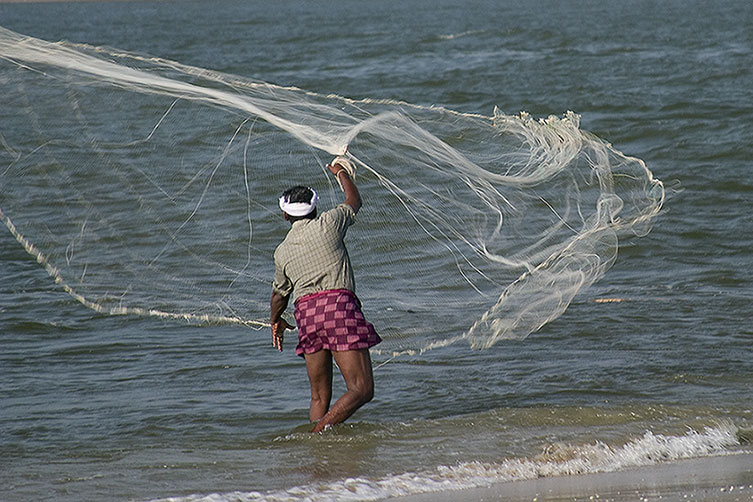Joaquim Magalhães de Castro
Considering that the Christian faith preached by Father João de Brito dismantled several Hindu principles, mainly the division of society into castes as the irreversible destiny of all human beings, soon the missionary began to suffer severe persecutions.
Father João was arrested and subjected to terrible tortures, but he did not give up. Christianity preaches exactly the opposite of Hinduism, affirming that all are children of God, equal, brothers, children of the same Father.
And Father João de Brito’s mission paid off. He even converted several Hindu communities (especially the fisherman) to the faith in Jesus Christ. And these communities became alive, full of faith, mature and exemplary in the practice of charity among themselves.
The Indian Christians converted by Father João de Brito were particularly happy when they freed themselves from the belief in the castes and when they recognized themselves as all brothers, children of the same Father.
João evangelized the peoples of Maravá and many were baptized. However, upon returning from this mission, he and other catechists ended up being arrested by pagan and anti-Christian soldiers that did everything to make them renounce their faith. But João de Brito chose to forget his own life and was open to martyrdom if need be.
The local king condemned him, but one of the princes wanted to hear the doctrine he spread and he arrived at the conclusion that such a doctrine was just and holy. Therefore, João and his companions were released.
At the end of fifteen years of apostolate in India, Father João de Brito returned to Portugal. There, he received an invitation that most would never refuse: to be advisor to King Pedro II and teacher of his son. The holy priest, however, declined this honor. Instead, he granted his heart’s request and returned to India.
When João de Brito set foot in Malabar he was faced with a devastating scenario: the local Christians had been killed; their houses and churches had been looted and burned. That was the result of a revolt led by Hindu religious leaders, known as Brahmins. They especially were against all who claimed to be Christians.
For this reason, João de Brito was also arrested and beheaded, on February 4, 1693. Before being executed, João de Brito obtained permission to pray. Pope Pius XII celebrated his canonization in 1947 and determined his liturgical feast to be the day of his death. The sainthood of João de Brito, a model for all of us that love Christ, the Church and the salvation of souls, cannot be measured in its full extent.
(Photo: Father João de Brito converted several Hindu communities, especially the fisherman of South India.)


 Follow
Follow


